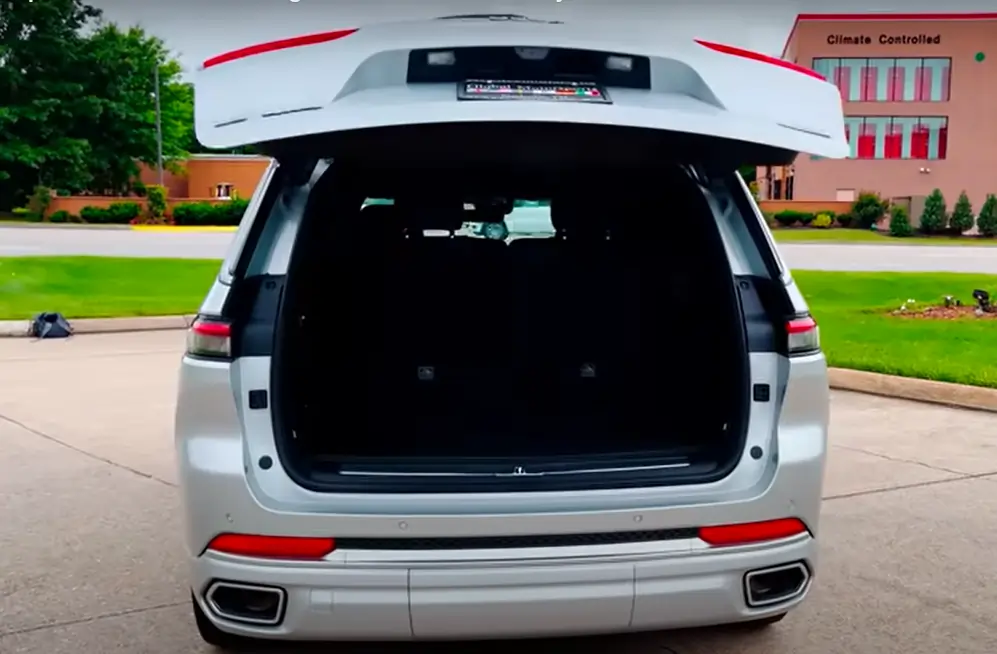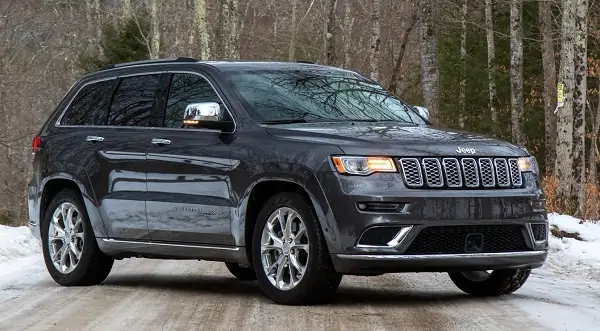When exploring the Jeep Grand Cherokee, one crucial aspect to consider is its weight. Understanding the weight of your Jeep Grand Cherokee not only influences performance but also affects fuel efficiency, handling, and towing capacity. In this guide, we’ll delve into the specifics of the Jeep Grand Cherokee’s weight, breaking down how different models and configurations contribute to its overall mass.
Understanding Vehicle Weight
Definition of Vehicle Weight
Vehicle weight encompasses several metrics that are important for a comprehensive understanding of your SUV’s capabilities. Here’s what you need to know:
- Gross Vehicle Weight Rating (GVWR): This figure includes the weight of the vehicle itself plus the maximum load it can carry, including passengers and cargo. It’s a crucial number for understanding the overall capacity of your Jeep Grand Cherokee.
- Curb Weight: This is the weight of the vehicle with all standard equipment and a full tank of gas, but without passengers or cargo. It provides a baseline for assessing performance and fuel efficiency.
- Payload Capacity: This is the maximum weight the Jeep Grand Cherokee can safely carry, including cargo and passengers, while still staying within the GVWR limits.
Importance of Vehicle Weight
The weight of your Jeep Grand Cherokee significantly impacts several key areas:
- Handling and Stability: Heavier vehicles often offer more stability, particularly in adverse conditions. However, they may be less agile than lighter counterparts.
- Fuel Efficiency: Generally, a heavier vehicle consumes more fuel. Understanding your Jeep Grand Cherokee’s weight helps you gauge its fuel economy.
- Performance and Towing Capacity: Weight influences the Jeep Grand Cherokee’s ability to tow and haul. Heavier models might be better suited for towing but could affect acceleration and handling.
Weight by Model and Engine Type
Base Model (Laredo)
- Curb Weight: The base Laredo typically weighs around 4,300 to 4,500 pounds. This weight includes standard features and a full tank of gas but no additional cargo or passengers.
- Key Specifications: The 2020 Jeep Grand Cherokee Laredo comes with a 3.6L V6 engine, which is designed to deliver a balanced performance while maintaining a manageable weight. This base engine provides a good mix of power and efficiency for everyday driving.
Mid-Level Models (Limited, Trailhawk)
- Curb Weight: Mid-level models such as the Limited and Trailhawk usually weigh between 4,500 and 4,700 pounds. The additional weight is due to enhanced features and off-road capabilities.
- Differences: These models come with added features like upgraded suspension systems, which contribute to their increased weight. The Trailhawk, in particular, includes off-road enhancements that add to its overall mass.
High-Performance Models (Overland, Summit)
- Curb Weight: The Overland and Summit models generally weigh between 4,700 and 4,900 pounds. This increase in weight is attributed to luxury features and additional equipment.
- Features: Premium options such as advanced infotainment systems, high-quality interior materials, and enhanced safety features all contribute to the vehicle’s heavier weight.
Performance Models (SRT, Trackhawk)
- Curb Weight: The high-performance SRT and Trackhawk versions are the heaviest, with curb weights ranging from 5,000 to 5,200 pounds.
- High-Performance Specifications: Equipped with powerful engines like the 6.4L V8 in the SRT and the 6.2L supercharged V8 in the Trackhawk, these models are built for high performance. The added weight comes from the robust powertrain and performance-oriented components.
Weight Comparison with Competitors
Comparison with Similar SUVs
- Ford Explorer: The Ford Explorer typically weighs between 4,200 and 5,000 pounds, depending on the model and configuration. The Explorer’s weight is comparable to the Jeep Grand Cherokee but varies with features and engine options.
- Chevrolet Traverse: With a weight range of approximately 4,500 to 5,000 pounds, the Chevrolet Traverse is similar in weight to many Grand Cherokee models. Its larger size contributes to its overall mass.
- Toyota 4Runner: The Toyota 4Runner generally weighs between 4,400 and 4,800 pounds. This weight is comparable to mid-range Grand Cherokee models and reflects its robust design aimed at off-road performance.
Impact of Weight on Competition
- Handling and Performance: Heavier vehicles like the Grand Cherokee may offer better stability but can be less nimble than lighter competitors. This can influence driving dynamics, especially in off-road situations.
- Fuel Efficiency and Towing Capacity: Weight impacts fuel efficiency, with heavier vehicles often consuming more fuel. On the other hand, a heavier SUV like the Grand Cherokee typically offers better towing capabilities, which is advantageous for hauling and pulling.
How Weight Affects Performance
Handling and Stability
The Jeep Grand Cherokee’s weight affects its handling both on and off-road. Heavier models generally provide better stability, making them more secure on uneven terrain. However, this stability comes with a trade-off in agility. For instance, the Grand Cherokee’s weight contributes to a smoother ride over rough surfaces but may impact quick maneuverability.
Fuel Efficiency
A heavier vehicle typically has lower fuel efficiency due to increased energy requirements to move the mass. The Grand Cherokee’s weight can lead to reduced miles per gallon (MPG) compared to lighter SUVs. For example, the base model may achieve better fuel efficiency than the high-performance Trackhawk due to its lower curb weight.
Towing Capacity
Weight plays a crucial role in towing capacity. Heavier vehicles like the Grand Cherokee can generally tow more due to their robust construction. For example, the Trackhawk’s substantial weight supports its high towing capacity, making it ideal for hauling trailers or boats.
Impact of Weight on Safety
Crash Safety Ratings
Weight contributes to crash safety, as heavier vehicles often fare better in collision scenarios. The Jeep Grand Cherokee’s weight can enhance its crashworthiness, offering better protection to occupants. Safety ratings from agencies like the IIHS and NHTSA reflect these aspects, with heavier SUVs typically scoring higher in safety tests.
Handling in Various Conditions
The Jeep Grand Cherokee’s weight affects its performance in different driving conditions. On rough, off-road terrains, the weight provides better traction and stability. In adverse weather conditions, such as snow or rain, the vehicle’s mass helps maintain control and prevents skidding.
Practical Considerations
Choosing the Right Model Based on Weight
Selecting the right Grand Cherokee model depends on your specific needs. If you require significant towing capacity or plan to use the vehicle extensively off-road, opting for a heavier model with a robust powertrain may be beneficial. Conversely, if fuel efficiency is a priority, a lighter model might be more suitable.
Maintenance and Modifications
Regular maintenance is crucial for managing the impact of weight on performance. Ensure that your Jeep Grand Cherokee’s suspension and braking systems are in top condition to handle its mass effectively. Additionally, modifications such as adding aftermarket accessories can alter the vehicle’s weight, which may affect performance and fuel efficiency.













Leave a Reply